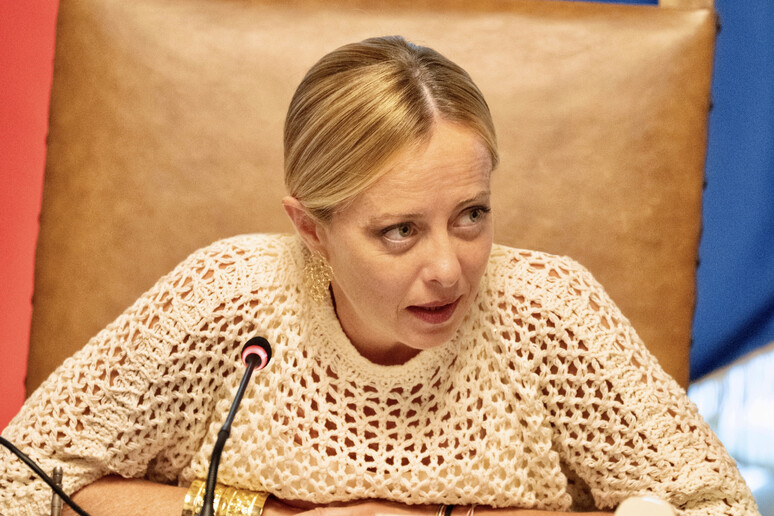Leading figures from the parties
supporting Premier Giorgia Meloni's government are set to hold a
meeting on Wednesday to discuss the 2024 budget bill.
The government wants to cut the labour-tax wedge further and is
said to be considering new measures to help the less well-off
cope with high fuel prices and energy bills.
The executive is also looking to impose additional limitations
on the so-called Superbonus incentive for renovation work that
boosts buildings' energy efficiency, which it says is a massive
drain on public finances.
At the weekend Economy Minister Giancarlo Giorgetti said he gets
a "belly ache" every time he thinks about the measure, which was
brought in three years ago by the executive of ex-premier and
5-Star Movement (M5S) leader Giuseppe Conte.
Earlier this week Economy Undersecretary Federico Freni said the
Superbonus had already cost the State 21 billion euros, with 109
billion more still on the debit side and the tally still
growing.
He has mooted the idea of limiting the incentive for low-earning
households.
The Superbonus scheme made it possible for homeowners to recover
110% of the cost of renovation works from the State in the form
of a tax deduction or invoice discount ('sconto in fattura').
Construction companies could also transfer the tax credit to a
bank ('cessione del credito').
However, the Superbonus was accused of inflating the cost of
building work and of being susceptible to fraud, as well as of
being unsustainable.
Consequently, from 2023 the tax incentive was lowered to 90% and
is set to be cut to 70% in 2024.
And in mid February the government approved a decree ending the
invoice discount and credit transfer systems for new renovation
projects.
Under the new rules, taxpayers can now only offset the cost of
renovations against their tax liabilities on their income tax
returns.
On Sunday Giorgetti promised that the government's 2024 budget
bill will be a prudent one "that takes into account the public
finance rules".
ALL RIGHTS RESERVED © Copyright ANSA











